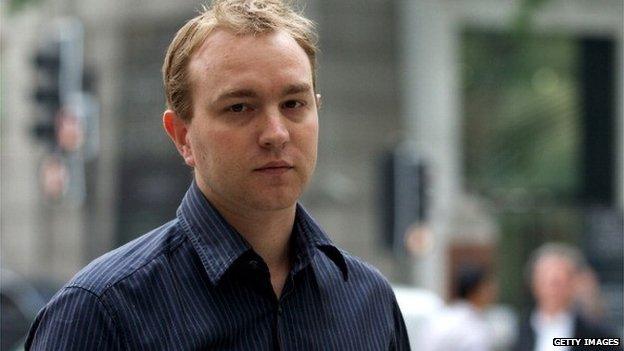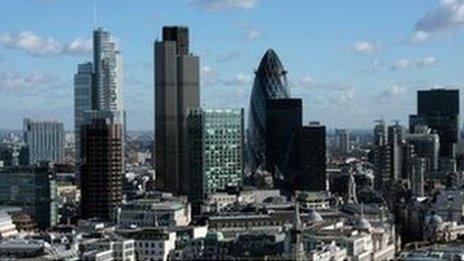Libor trial: 'Ringmaster' was 'greedy', court hears
- Published

The first criminal trial linked to the manipulation of a key interest rate, known as Libor, has begun in London.
Former City trader Tom Hayes, 35, of Fleet in Hampshire, has been accused of acting in a "thoroughly dishonest and manipulative manner" in his alleged attempts to rig the Libor rates, the court heard.
The former UBS and Citigroup trader denies eight counts of conspiracy to defraud over the period 2006-2010.
Mr Hayes was charged in June 2013.
Libor - the London Interbank Offered Rate - is an interest rate used by banks around the world to set the price of financial products worth billions of pounds.
Mukul Chawla QC, acting for the prosecution, said: "This case is about the dishonest rigging of bank rates for profit.
"The motive was a simple one: it was greed," said Mr Chawla, who described Mr Hayes as "the ringmaster at the very centre, telling others around him what to do and in a number of cases rewarding them for their dishonest assistance".
'You are greedy'
Jurors at Southwark Crown Court heard that Mr Hayes told investigators: "The point is, you are greedy, you want every little bit of money you can possibly get... that's how you are judged, that's your performance metric."
It was this greed that led to "dishonesty on an enormous scale", said Mr Chawla.
The prosecution accused Mr Hayes of enlisting "the help of a large number of people across a large number of different financial organisations to help him", Mr Chawla added.
"He tried to rig, and in many cases succeeded in rigging, the rates at other banks," Mr Chawla said.
He achieved this by approaching people at other banks directly or through brokers acting as middlemen, he said.
Mr Chawla said Mr Hayes had "admitted his guilt, setting out precisely what he had done with whom" and offering to give evidence about a "large number of other people".
The court was played a clip where Mr Hayes said he was part of a system in which influencing Libor was "commonplace", although he admitted he was a "serial offender".
'Dishonest activity'
The court also heard that Mr Hayes had been diagnosed with mild Asperger's syndrome.
It was also told there had "undoubtedly been some manipulation of Libor at UBS before Mr Hayes's own dishonest activity".
After Mr Hayes felt that "UBS were not paying him enough", he joined Citi in 2009. He was sacked after his methods were formally reported to senior managers and he returned to the UK.
Mr Hayes is accused of lying about the rates that his bank was borrowing money at, thus affecting the calculation of the Libor rate.
The trial is set to last between 10 and 12 weeks.
The way Libor is calculated has now been changed in the wake of the rate-rigging scandal.
- Published3 August 2015
